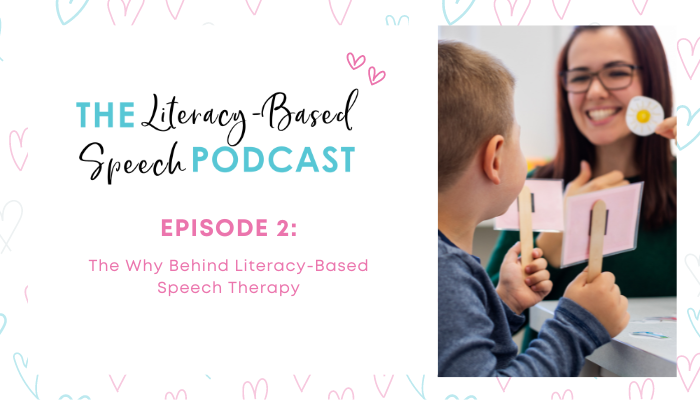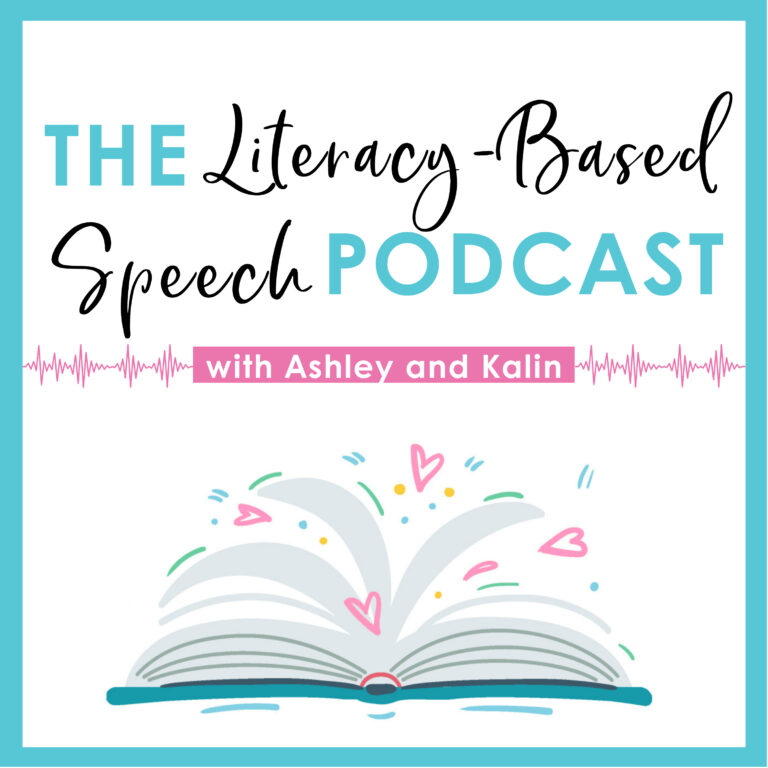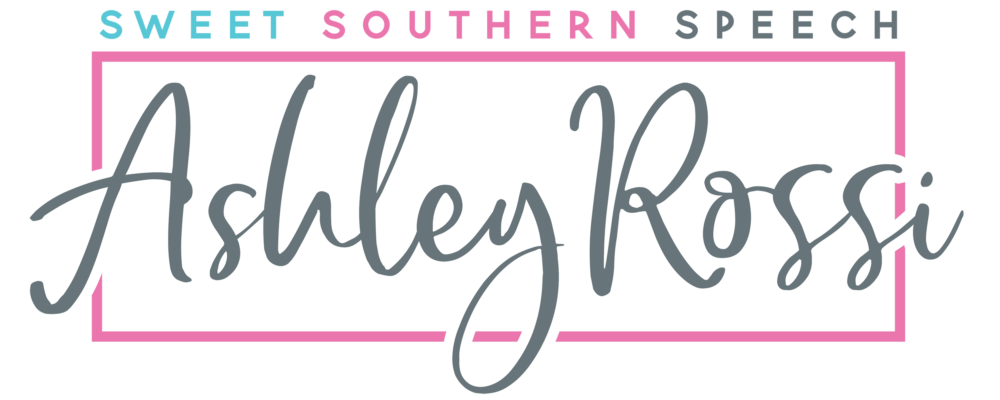The Why Behind Literacy-Based Speech Therapy – Episode 2

Being in the educational field, we know that the use of books and reading to children is an important part of their language development. And while the role of SLPs vary by school, district, and state, many want to use a literacy-based approach with their students. However, they feel they need to defend their reasoning for using them.
With this research heavy episode, we share how literacy is a natural context for targeting specific language skills, improves communication, and benefits all students with whom you work with. No matter how your role is set up, literacy practice and books should be a vital part of your sessions. We’ll identify various books to use that help practice different skills with repetitive texts. We’re confident that with the information we provide, you can begin using a literacy-based session with your students!
To celebrate the launch of this podcast, we’re doing a giveaway! You can enter to win one of ten Amazon gift cards by leaving a review on Apple Podcasts. Before submitting your review, screenshot the episode and send it to us in a DM on Instagram @literacybasedspeechtherapy or via email to podcast@sweetsouthernspeech.com. The giveaway closes June 6, 2023.
Topics Discussed:
- The importance of using literacy-based approach in speech therapy
- The role of an SLP and their scope of practice
- How a literacy-based session can impact students with a speech sound disorder
- Why reading as a therapeutic tool needs to be intentional and purposeful
- A list of book suggestions to use with students for story grammar and repetitive texts
Research Mentioned in This Episode:
- “SLPs play a critical and direct role in the development of literacy for children and adolescents with communication disorders” (ASHA, 2001,). This role includes the identification of children who are at risk for reading and writing problems, such as dyslexia. As outlined in ASHA’s position statement, “the connections between spoken and written language are well established and spoken language provides the foundation for the development of reading and writing” (ASHA, 2001).
- “The language and phonological awareness deficits of children with CAS are related to their risks for reading failure. To a lesser degree, motor speech deficits and speech sound production also increase risks for reading difficulties. The findings justify early intervention for this subset of children. Children with speech sound disorders often struggle to develop strong underlying phonological representations.” (Carroll & Snowling, 2004; Farquharson et al., 2017; Larrivee & Catts, 1999; Nathan et al., 2004; Rvachew et al., 2003; Sutherland & Gillon, 2005, 2007).
- “When children with speech sound disorders receive early speech intervention and sounds are successfully remediated, they may be at continued risk for later reading, spelling, and academic difficulties.” (Anthony et al., 2007; Farquharson, 2015a; Farquharson & Boldini, 2018; McNeill et al., 2018; Nathan et. al, 2004; Raitano et al., 2004).
- “Children with dyslexia commonly have a history of poor oral language skills in early childhood.” (Bishop & Adams, 1990; Magnusson & Nauclér, 1990; Scarborough, 1990; Snowling & Melby-Lervåg, 2016).
The Literacy-Based Speech Podcast
Do you want to use picture books more in your speech therapy sessions, but have no idea where to start? OR are you already using books in therapy but find it time-consuming to find the RIGHT book and identify relevant speech and language concepts?
You’re in the right place! The Literacy-Based Speech Podcast will help you feel confident in your book choices and instructional decisions. We’ll give you the tools you need to intentionally maximize your sessions!


Meet Your Hosts
Join co-hosts Ashley and Kalin from Sweet Southern Speech each week as they share evidence-based and SLP-approved strategies to use picture books more efficiently and effectively in your speech therapy sessions.





